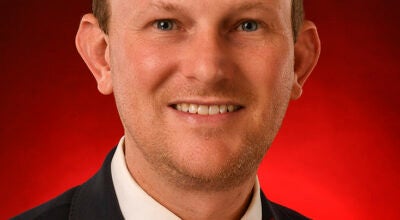In praise of bettors and speculators
Published 5:40 pm Wednesday, February 19, 2014
Electronic markets now exist to let people buy or sell contracts on a wide variety of economic, political and societal events. One such market was operated by Intrade, whose political futures markets gained attention for their predictions in the 2008 Presidential election. Although Intrade fell afoul of Federal regulators and shut down in 2013 after revelation of financial irregularities, prediction markets organized to assemble information can provide tremendous value to the economy. They also illustrate the role of information in a market economy. What can society learn from betting on sports, movies, elections, or global warming? Quite a bit it turns out.
Consider bets on football games. A bet on Alabama or Auburn is more than just a way to shout “Roll Tide!” or “War Eagle!” The bet is a prediction about what will happen. Information – how well each team is playing, injuries, matchups – shapes such predictions. Diverging predictions clash in betting markets, because anyone willing to bet against you clearly views the game differently. The clash of predictions and risking money forces fans to gather information and examine if they are betting with their head or their heart. The price in the market, the point spread in football, provides information to other fans in a convenient form. If Alabama is only favored by 2 points, even casual fans know that the Tide face a tough game.
Oil futures markets operate much the same way. People can invest, or bet depending on your perspective, on the price of oil a year or five years from now. Is the world running out of oil? Futures prices summarize the predictions of world oil experts, and predict that the price should remain steady. Speculators face much criticism, but only make money when their predictions are correct. The futures prices they help create let businesses make more sensible decisions in an uncertain world.
Speculators and bettors provide a service to the economy. The data and analysis required to make informed judgments about the future is costly. Investors undertake this research in hopes of making a profit, and the bets they place reveal what they learn.
Market prices end up conveying a staggering amount of information, as economist Friedrich Hayek first recognized, and as journalist James Suroweicki explains in his excellent book The Wisdom of Crowds. Sports betting lines, for example, accurately predict games.
Markets allow us collectively to learn things no person seems to know. In 1986 the space shuttle Challenger exploded shortly after launch. Four shuttle contractors were obvious potential culprits for the disaster. A six month investigation by the scientific commission appointed by President Reagan placed blame on Morton Thiokol’s solid fuel booster. Yet the stock market appeared to figure this out within minutes: while the stocks of the other contractors fell a few percent, trading of Thiokol’s stock was halted because so few wanted to buy it.
All markets gather information, but typically as a by-product of their main functions. Wheat futures, for example, emerged to help farmers reduce risk, even though the price established in the market is valuable. Prediction markets are organized to fill gaps in existing markets.
Prediction markets offer the potential to significantly improve policy making. Federal agencies must conduct cost-benefit analyses of significant new regulations. Yet the agencies control the information and can set assumptions which outside economists cannot really challenge in regulatory reviews. Too often cost-benefit analyses merely confirm decisions agencies already want to take. Prediction markets can potentially help identify flawed analysis in time to block harmful regulations.
Consider President Obama’s claim during the debate over the Affordable Care Act that Americans would be able to keep their insurance coverage and doctor. Suppose that a prediction market existed during this debate about the number of health insurance policies that would be canceled in the first year of the Act. This “betting line” would immediately have tested the President’s claim.
The news media often “fact checks” statements by leading politicians, but the reporters’ own points of view often infect the checks. Prediction markets offer new possibilities for harnessing the wisdom of crowds to improve our policy debates and ultimately our lives. I look forward to prediction markets for regulation.
Daniel Sutter is the Charles G. Koch Professor of Economics with the Manuel H. Johnson Center for Political Economy at Troy University and host of Econversations on TrojanVision. Respond to him at dsutter@troy.edu and like the Johnson Center on Facebook.


